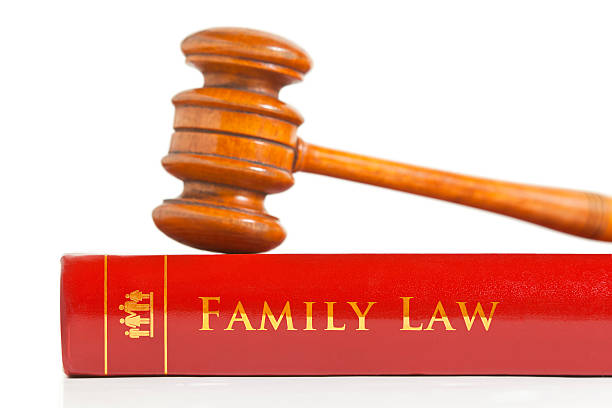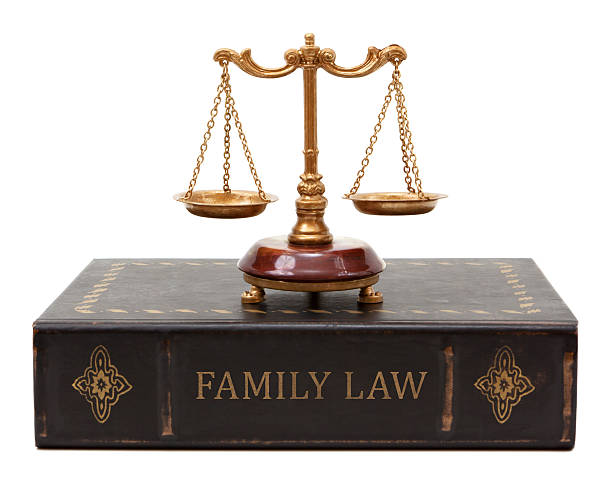Orders and injunctions binding third parties are often necessary in family law cases. These are applicable where there are complex issues that require the involvement of third parties. Under the Family Law Act 1975, the Court can make orders and injunctions binding third parties. This means that even if they are not parties to the proceedings directly, they can nonetheless be impacted by the court’s orders and injunctions.
This article will discuss Sections 90AA-90ADA, which stipulates Part VIIIAA’s scope, providing rules on orders and injunctions binding third parties.
Orders and Injunctions Binding Third Parties
If the court orders to sell the property, the order will be binding on any third party interested in the property. This means the third party must comply with the court order, even if they disagree. Similarly, if the Court orders a party to pay for child support, the order will bind the employer of the person required to pay the support. The employer must deduct the amount of child support from the employee’s wages and deliver it to the other party.
If a person is subject to an injunction that prohibits them from contacting their former partner, the order will also be binding on any third party aware of it. This means that if the person breaches the order by contacting their former partner through a third party, the third party may also be in breach of the order.
Objective of Part VIIIAA of the Family Law Act 1975
Section 90AA of the Act provides for the purpose of the provisions on orders and injunctions binding third parties. This Section stipulates that the goal of this Part is to give power to the Court to issue or grant the following documents concerning the property of a party to a marriage:
- An order under Section 79 or 114 of the Act.
- An injunction under Section 114 of the same Act.
Section 114 authorises orders or injunctions relating to a party’s protection, preventing a party from specific conduct, marital relationship protection, personal property of a party to a marriage, or use or occupancy of the matrimonial residence. Moreover, these orders and injunctions aim to alter a third party’s rights, liabilities, or property interests.

Who Can Be a Third Party?
The term “third parties” can refer to a corporation or trust entity closely related to one or both parties, an unrelated entity, or an individual, such as one of the parties’ parents, children, siblings, or business associates.
It is usual for a family business to take a significant role in the relationship’s assets and financial resources. This means that the Court may call elderly parents of a divorced child as trustees or appointees of a family trust and/or directors and shareholders of a family corporation for which their child worked during the partnership.
Why is There a Need to Include the Third party in the Proceedings?
The inclusion of a third party can occur for several reasons, such as when:
- The third-party can only carry out the orders issued by the Court;
- The transaction intends to undermine a spouse’s claim;
- The prevention of a third party to do anything for the court order to be effective; or
- The request for an order or declaration is against the third party to determine the included assets in the asset pool.
Section 90AB defines a ‘third party’ as a person, not a party to the marriage. This includes other individuals, including close friends and family of the parties to the marriage, companies, and financial organisations.
It is sufficient to name the person or entity as a respondent in the Initiating Application or to amend the application later and request a third party to include them in the proceedings.
Therefore, including a third party in a property dispute is usually not difficult. They may also petition the Court to abstain from making orders that will impact them.
The Overriding Power of Part VIIIAA
Section 90AC provides for the overriding power of this Part. Nothing done under Part VIIIA by a third party is to be regarded as constituting a violation of any law or instrument. This is regardless of anything that is against any other law, whether written or unwritten, of the Commonwealth, a State, or Territory, or anything in a trust deed or other mechanism, whether made before or after the commencement of the Part VIIIAA.
Thus, Part VIIIAA is to take precedence over any other law of the Commonwealth, a State, or Territory, as well as any trust deed or other instrument, even if its creation succeeds the effectiveness of Part VIIIAA. Moreover, a third party shall not be deemed to have violated any other law or legal document when following Part VIIIAA.
Non-applicability of this Part to Superannuation Annuities
Superannuation annuities are contracts between the investor and an insurance company. The investor pays a lump sum amount to the insurance company, which guarantees a fixed income for the annuity period.
Section 90ACA stipulates that “the powers of the court under this Part do not apply to superannuation annuities within the meaning of the Income Tax Assessment Act 1997.”
Section 90AD and 90ADA
Under FLA, Section 90AD stipulates treating debt owed by a party to the marriage as property for matrimonial cause and Section 114(1)(e). Thus, this Section has the effect that a debt owed by a party to a marriage is to be treated as property for the purposes of the definition of “matrimonial cause.” This relates to proceedings between parties to a marriage concerning the property of parties to the marriage.
Thus, to bring “debt adjustment” proceedings within the definition of “matrimonial cause” presupposes the interpretation of a debt of the parties, being a liability, as property, which is an asset. Lastly, Section 90ADA provides that the rules set in this Part will not affect the other provisions of this Act.
Orders and injunctions binding third parties are essential tools in family law cases in Australia. They allow the courts to enforce their orders, even if the parties involved are unwilling to comply. Thus, third parties generally must comply with court orders and injunctions, subject to some exceptions.

How Can JB Solicitors Help You?
If you are tangled in a family law case it is crucial to seek legal advice. Our qualified family lawyers at JB Solicitors can assist you with any family law issues you may be facing. We would like to discuss the costs of your family law or other legal matter with you. Want to know more? Contact us today.
